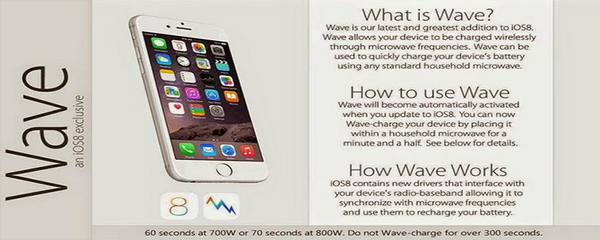Welcome to the 2nd annual EdTechTeacher iPad Summit in San Diego! Over 500 educators from around the world have joined together to explore the potential and possibilities for iPads in the classroom. To kick off this event, Alec Couros (@courosa), Associate Professor of educational technology and media at the Faculty of Education, University of Regina is giving the opening keynote.
Alec has given hundreds of workshops and presentations, nationally and internationally, on topics such as openness in education, networked learning, social media in education, digital citizenship, and critical media literacy. His graduate and undergraduate courses help current and future educators understand how to use and take advantage of the educational potential offered by the tools of connectivity.
Getting Connected
Alec says that he always likes to start with the idea of identity and begins with himself. He shows the group his faculty page which "hasn't been updated in years." However, Alec says that identity has really become a big blur. One of the places that Alec likes to begin with his students is to create About.me pages so that they can begin to create their professional identity.
One day, Alec says that he tweeted out that he was thinking of starting a MOOC. Within a short time, he had over 2000 participants from 75 countries. He has always been a fan of Open Educational Resources. In fact, one person called him an "educational communist." In response, he created his own "attack ad."
While it's important to focus on professional identity, Alec also talks about the need for a good personal identity. Though he does not put out a lot of information about his family, he does occasionally tweet about his family and is surprised at the response.
7yr old paused in the middle of a sentence while he was thinking of what to say next. My 10yr old: "Hold on dad. He's just buffering" #fb
— Alec Couros (@courosa) September 20, 2014
He ties this back into the idea of how this idea of professional and personal identity impacts students and student relationships. While the actual tools may not still exist in a few years, the connections will exist.
The Promise, Power, & Potential
In many ways, we have been existing in a technological utopia. Just looking at stock photos, you get a sense of the reaction and sentiment to technology. Alec shows pictures of happy teachers pointing at computers as well as one of the early Apple computers where a student creates a video and "prints to VCR."
https://www.youtube.com/watch?v=1y5fnD8ASzQ
From there, Alec shows examples of student directed learning where they are able to do amazing things when provided with devices.
"The scandal of education is that every time you teach something, you deprive a student of discovery." - Seymour Papert
He then compares iPhone to a lightbulb. They really do change things. Alec shows Mazlow's Hierarchy of human needs and draws "wifi" in under shelter. However, he raises the question that we may be so connected that we are becoming disconnected. In doing this, he shows a number of images of people on devices and missing the world.
Identity, Intimacy, and Imagination
Alec shifts his conversation to Howard Gardner's App Generation and talks about how students can create their own identities. In fact, he references the story of Trevor Moran - a boy who creates a career for himself by visiting Apple Stores and creating music videos. With Intimacy, he shows a lip-dub that a guy created as a way to propose to his girlfriend. Something that is normally a private moment becomes a massive public event.
Brad and Emily get Engaged! (A LipDub Proposal) from Bradley Productions on Vimeo.
Imagination is another thing that is being impacted. Alec shows a video of a young boy who creates a Rube Goldberg Machine after being inspired by a video by OK Go.
Audrey Watters, quoting Angela Maiers states that The big shift isn't that content is digital. It's that the learning culture is participatory.Previously, we all existed in a MYOB - Mind Your Own Business - learning environment. The real question, is now we move towards the idea of connected learning being not just technological or digital but in actually being collaborative.
As an illustration, Alec shows a video of a young boy trying to learn how to make a Bow Drill set. Instead of just asking a question, he created a video and then posted it to ask for help.
He received over 27,000 hits and comments that all helped him to learn how to solve his problem. Essentially, we need to move beyond the idea of Digital Natives vs Digital Immigrants and towards the idea of Digital Visitors vs Digital Residents. For tangible examples, Alec talks about Cathy Cassidy and shows Suzy Brooks' Tweet Sheet.
Beyond Text
One of the powers of having devices is how it allows teachers to begin thinking beyond text. The first example that Alec shows is how video mashups can be used to explain concepts. In many ways, this is the new digital essay. Students bring together expertise and work in order to create something that was never before seen.
There's also a new push to do storytelling through new media. As an example, he showed a video of a group of students that told Forest Gump in less than one minute.
This was a great way for students to consider telling stories as a whole. If we are going to be masters of media, then Alec says another concept is to understand Genre Shift. As an example, what if The Shining was retold as a romantic comedy.
Another great concept is crowdsourcing. As an example, Star Wars was recreated where every 15 seconds was a different creator all spliced together. Another example is a shot-a-day documentation project where someone captures a clip every day for a year. It provides a different way to think about putting things together.
Pitfalls
To introduce the concept, Alec shows an image of his male friend with a t-shirt that says "I may be your teen girlfriend." He talks about how products like YikYak and Chatroulette become mainstream via YouTube.
Alec says that David Wees made the comment that he's in favor of Internet filters but wants to move then from the router to students' heads. The challenge is to get them to think critically about media rather than block their access. In fact, Alec talks about the Internet hoax of iOS8 Wave.

He then showed the number of people who either extolled the spoof or fell for it and then fried their iPhones.
From there, Alec talked about the fall out from when the UC Davis police pepper sprayed the students who were passively protesting. He talked about how everything is documented as well as how students can make mistakes not realizing the public nature of media.
"When you decline to create or to curate a culture in your spaces, you're responsible for what spawns in that vacuum." (Alexander, 2014)
The call to action is that as educators, we need to go back to seeing how we can have students create and curate their digital identities online. If we empower them with devices, how are we helping them to shape their digital personalities. One example that Alec gives is having students purchase their own domain names. Other examples include digital portfolios as well as a college that has students purchase A Domain of One's Own so that every student has a positive identity hosted through the university.
In many ways, we are at the "end of forgetting." There's a promise of ephemerality such as with SnapChat. There is a move towards the ability to forget. In the EU, there is a way to petition Google to have content removed as well as the Teenage Bill of Rights that allows kids the "right to make mistakes." Alec references the NY Times article that The Web Means the End of Forgetting.
Humanization
Technology has to be humanizing in our environments. We live in an age of both hatred and compassion. We can have meaningful relationships online. To bring this to heart, Alec tells the story of how he posted to Facebook on the day that his father passed away. The number of comments offering support were overwhelming and ultimately he mapped all the commenters. He showed a map of the world and thinks about how he never expected to feel support from a global audience.
The CNA Speaking Exchange connects English learners in Brazil with senior homes in the US. It allowed for both groups to have relationships and forge connections.
This gives a learning context as well as an opportunity to create more than "just better students but better people."
Are we purposefully preparing students for the type of world that they currently live in, one that includes the prevalence of open spaces and networked possibilities?
Alec leaves us with this charge as well as the challenge to ask us if we are preparing our students for this world.

